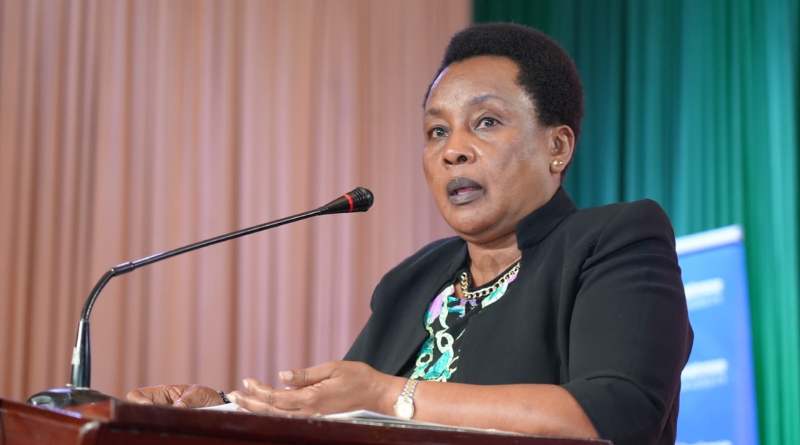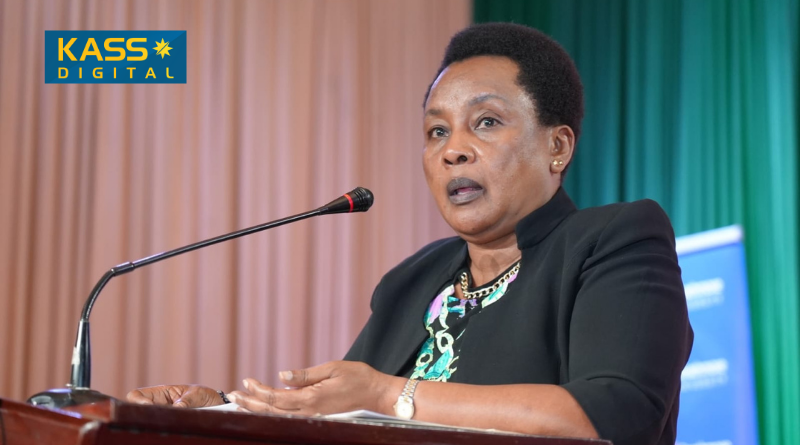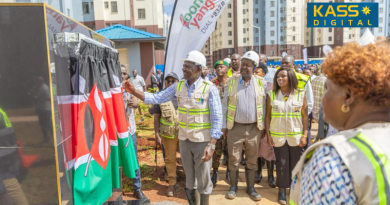Justice Leaders Call for Urgent Action to End Child Labour
By Chemtai Kirui, NAIROBI,
Judiciary leaders have called for urgent and coordinated action to eliminate child labour in the country, saying judges must use the law creatively to protect children and strengthen access to justice.

Speaking during the Third Employment and Labour Relations Annual Symposium and Exhibition (ELRASE III) at Strathmore University, Deputy Chief Justice Philomena Mwilu said child labour remained a major barrier to children’s rights and development.
A 2024/2025 survey by the International Programme on the Elimination of Child Labour (IPEC) and the Kenya National Bureau of Statistics (KNBS) shows an estimated 8.5% of children, or about 1.3 million, are engaged in child labour, with prevalence rising above 30% in many Arid and Semi-Arid Lands counties.
Surveys from places like Kitui report many children working in domestic chores, agriculture, forestry and fishing; other initiatives point to child labour risks in tea and coffee supply chains.
The International Labour Organization estimates that millions of children across sub-Saharan Africa are involved in work that deprives them of education and exposes them to harm.
“Every judgment we deliver is an opportunity to tilt the scales of justice towards tangible societal transformation.” Mwilu said. “No child should work when they should be learning; no child should suffer when they should be safe.”
The Deputy Chief Justice described child labour as not only a violation of Kenya’s Constitution but also of international conventions to which the country is a signatory.
She urged judicial officers to show courage in translating legal provisions into practical protections for vulnerable children.
Chief Justice Martha Koome, said ending child labour requires a “whole-of-society approach”, involving Parliament, the Executive, the private sector, civil society, and communities.
She pointed to the Judiciary’s Child Justice Strategy (2023–2030) and the establishment of specialised Children’s Courts as evidence of institutional commitment.
“Justice for children is justice for society. In protecting their rights, we protect our collective future,” Koome said.
They said that the Judiciary’s reform agenda — known as Social Transformation through Access to Justice (STAJ) — prioritises protection of children and other vulnerable groups, pledging that lessons from the symposium would help shape stronger jurisprudence on child rights.
Employment and Labour Relations Court Principal Judge Byram Ongaya said access to justice for children requires dismantling barriers such as cost, stigma, fear of retaliation and language.
“Child labour violates the rights of children. There must be effective remedies that restore protection, care and dignity,” he said.
The meeting, now in its third year, brought together judges, practitioners, academics and policymakers to review Kenya’s labour and justice frameworks. Discussions included the use of emerging technologies such as artificial intelligence to detect and prevent exploitation.
“The fight to eliminate child labour is about restoring dignity to the most vulnerable and ensuring that every child has the chance to learn, to grow, and to dream,” Mwilu said.




